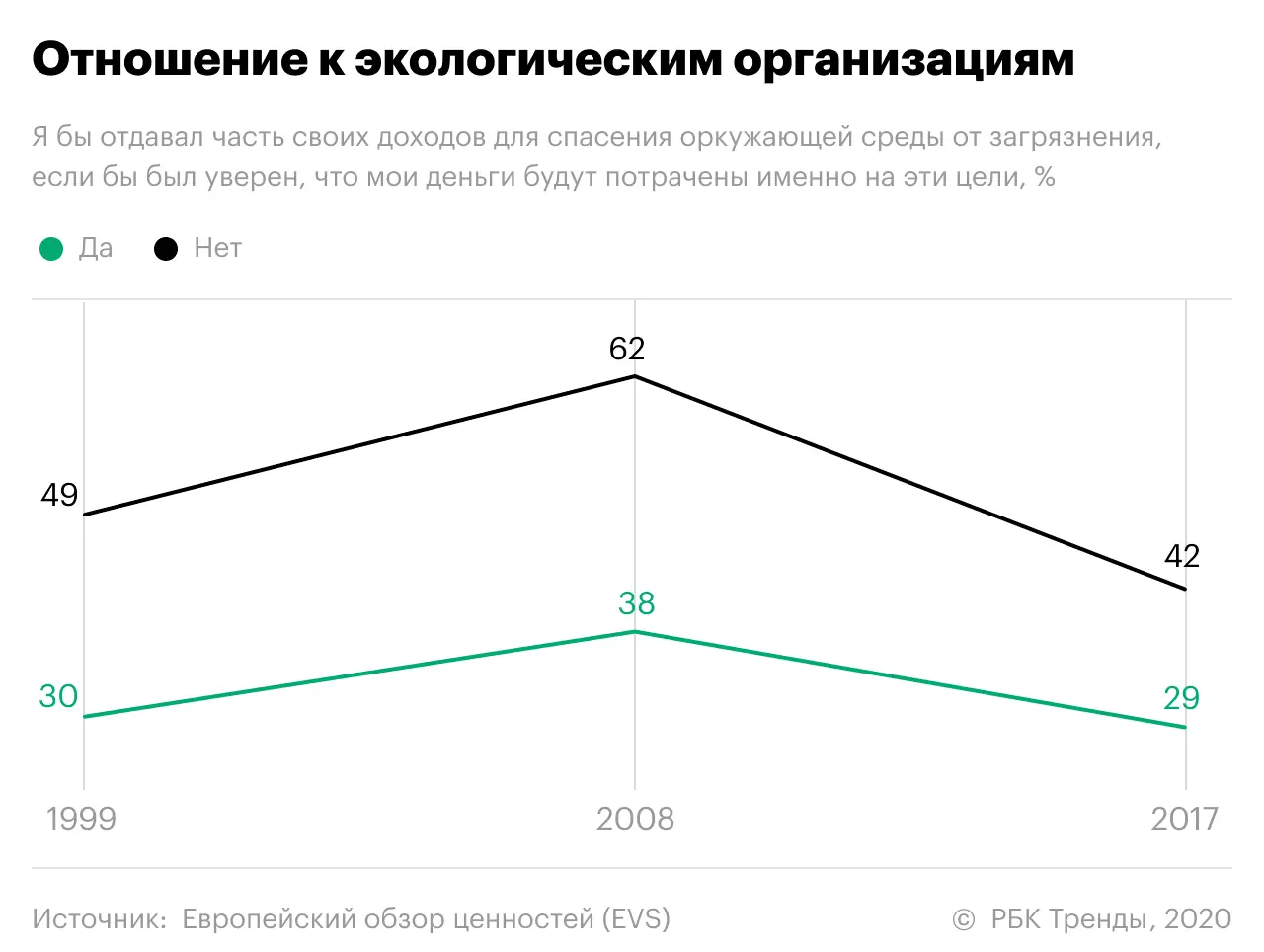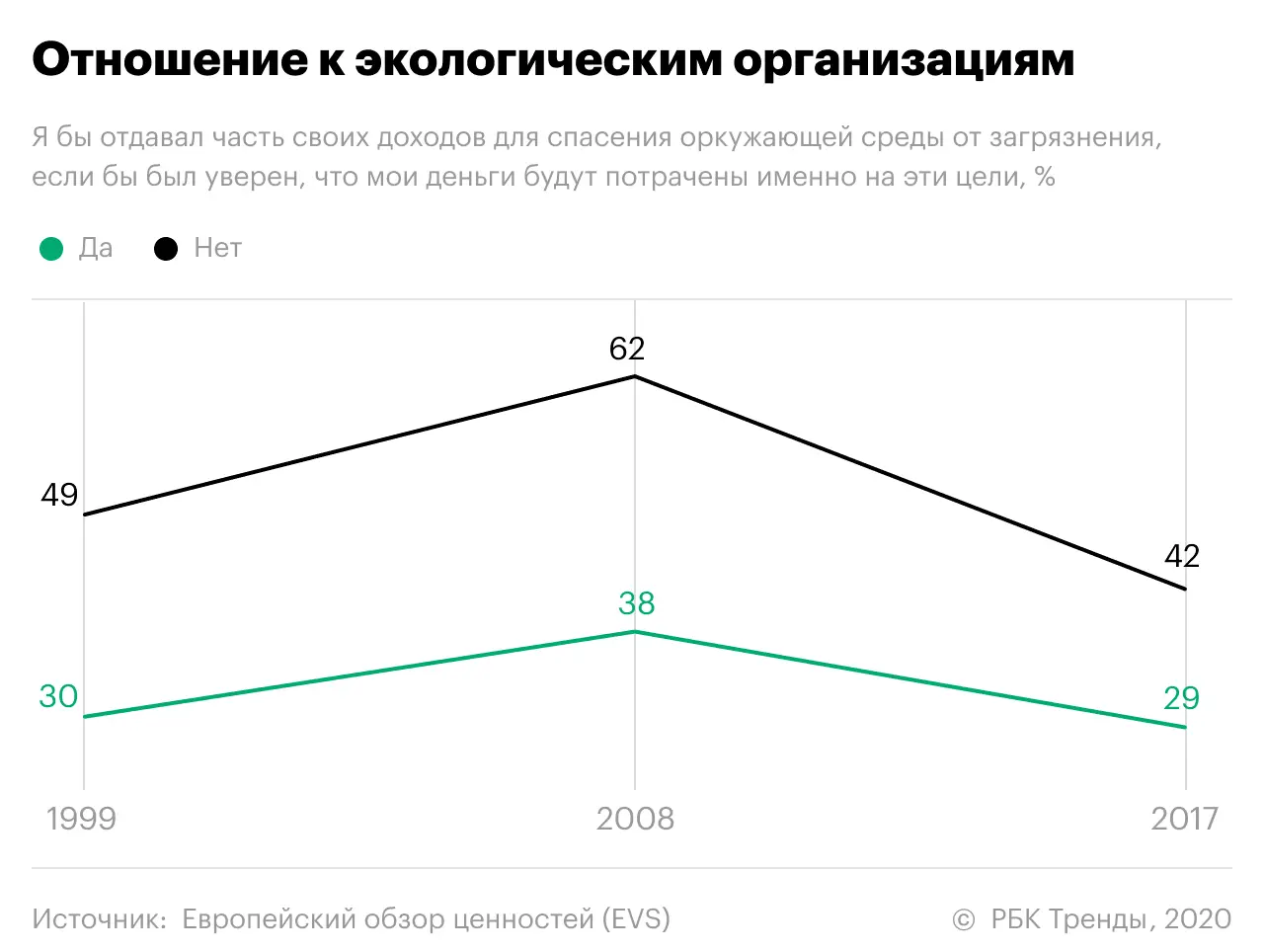Contents
The environmental agenda in our country has recently been increasingly coming to the fore. Why is this happening? Does our country trust environmental organizations and who considers the problem of climate change exaggerated?
About the experts:
- Margarita Zavadskaya, Research Fellow, European University at St. Petersburg and Senior Research Fellow, Laboratory for Comparative Social Research, National Research University Higher School of Economics
- Elena Gorbacheva, PhD student, Faculty of Humanities, University of Helsinki
Over the past year in our country, environmental protests against the construction of a landfill at Shies have been especially significant and noticeable, which played an important role in the resignation of the governor of the Arkhangelsk region. Campaigns by Moscow region activists against landfills and waste incinerators that poison the air in the region continue. Protests near Kazan against the construction of a waste incineration plant do not stop. Nevertheless, the construction of such plants is not an isolated case, which, oddly enough, is part of the national project “Ecology”. The fact is that the technology of incineration associated with the use of municipal solid waste (MSW) as a renewable energy source has appeared in the list of recycling technologies.
Environmental problems in our country are not limited to incineration, storage of garbage and the deterioration of the quality of life of people. Ecological disasters have become noticeably more frequent in recent years. On the other hand, the official environmental agenda in our country is the conservation of nature, the sorting and recycling of waste, and the fight against global warming. Against the background of the epidemic, economic recession and political events, these topics do not look at least not the highest priority.
Ecological values and problems of the “first world”
From the point of view of the theory of modernization, the values of ecology are included in the set of post-industrial values, when the needs for economic stability and security are satisfied, and you can take care of the quality of life and self-expression. To put it simply, for someone who doesn’t know how they’re going to pay their mortgage next month, conservation issues are “first world” issues, and Greta Thunberg’s fiery speeches evoke nothing but annoyance and irony. However, residents of the Arkhangelsk region and the neighboring Komi Republic, having learned about the plans to create a landfill on Shiyes for waste from Moscow, went out to protest, managed to organize a field camp with a duty schedule and even a network of indefinite protests. Without the mass support of the local population, the activists would not have been able to hold out for so long and achieve their demands.
Does this mean that environmental values are becoming more important in the daily life of our country? We propose to look at these trends using data from the World Values Survey in our country, which since 2011 has been coordinated by the HSE Laboratory for Comparative Social Research.
Economic growth or environmental protection?
Ironically, environmental protection was a higher priority for Russian respondents than economic growth from 1995 to 2011. But in 2017, economic growth became as important as environmental protection. Compare with Estonia, a post-Soviet country where the environmental movement was a significant part of the independence movement in the late 1980s, and with Finland, a country without a communist past and one of the most developed environmentally oriented economies. If in the 1990s and early 2000s in Estonia the priorities of the economy and ecology were on parity, by 2020 the importance of the environmental agenda has increased significantly – from 48% to 61%. In Finland, the “green agenda” won a little earlier, at the beginning of the XNUMXs.


If we look at the dynamics of “I don’t know” responses, then everything will fall into place: in 1995, the share of such respondents in our country amounted to a fifth of all respondents – 21%, and by 2017 their share had dropped to 12%. In other words, in 1995, almost a quarter of the respondents simply had a poor idea of what they were talking about, but by 2017, the alignment became similar to the Estonian and Finnish model of the mid-1990s.
Has our country become more concerned about the environmental agenda?
The answer is not very obvious. Even if at the end of the economic stability of the early “noughties” groups of the population with “green” views formed, the subsequent economic recession pushed these issues into the background.
Another important indicator is the attitude towards environmental organizations. If the share of respondents who found it difficult to answer this question decreased from 18% to 11%, then the level of general trust decreased (from 46% to 34%) with an increase in those who do not trust such organizations at all (from 4% to 15%).
On the one hand, such a trend is contrary to the idea of eco-modernization, which should go hand in hand with economic development. On the other hand, this may indicate disappointment in the work of such organizations or the growth of those who do not consider climate change an important problem in our country. The decline in trust in environmental organizations is also associated with the introduction of the Law on Foreign Agents. Among all organizations that appeared as of December 2016 in the register of NPOs performing the functions of a foreign agent, 15% had an environmental and environmental focus. Research showedthat the law “On Foreign Agents” has led to a decrease in trust in environmental organizations and an increase in negative attitudes towards them.


The willingness to donate part of the income to save the environment was at its peak in the late 2000s (62% of respondents agreed), and by 2017 returned to previous levels (42%). This, too, is a sign of the medium-term effects of the economic downturn. Environmental issues are receding into the background on the agenda of our country.
How has attitudes towards climate change changed?
According to the latest data from the European Values Survey (EVS) the proportion of our countries that consider the problem of climate change exaggerated was 24%, which is almost twice as much as in Finland (14%) and about the same as in Estonia (26%). The number of those who disagree with this statement was 37% against 65% in Finland and 48% in Estonia. This suggests that among our countries there are more respondents who do not have a strong opinion on this issue. Among Estonians, there are somewhat fewer such people, but in Finland there is already a consensus on this issue in society.


Thus, in the early 2000s, attention to the environment in our country grew, but in recent years, our country has begun to worry more about economic problems than about the state of the environment. The environmental agenda at the state level became a priority only in May 2018 decrees. And in connection with the coronavirus pandemic, the deadline for achieving the ambitious goals set in the national project “Ecology” in July of this year was postponed from 2024 to 2030, and project funding was reduced by 8 billion rubles. this year.
On the one hand, it is clear that in the context of the economic downturn, there are noticeably fewer “lobbyists” for the environmental agenda. On the other hand, according to experts, humanity has only a few years left to change its environmental habits and prevent a critical increase in the average temperature of the Earth by more than 1,5 ° C from pre-industrial levels. In our country, the rate of climate change is on average 2,5 times higher than the global one, which means that its negative consequences are manifesting faster: ice melting, drought, forest fires. Therefore, the lack of due attention of both authorities and citizens to environmental problems is causing increasing concern.
More information and news about how business, law and society are “greener” in our Telegram channel. Subscribe.










